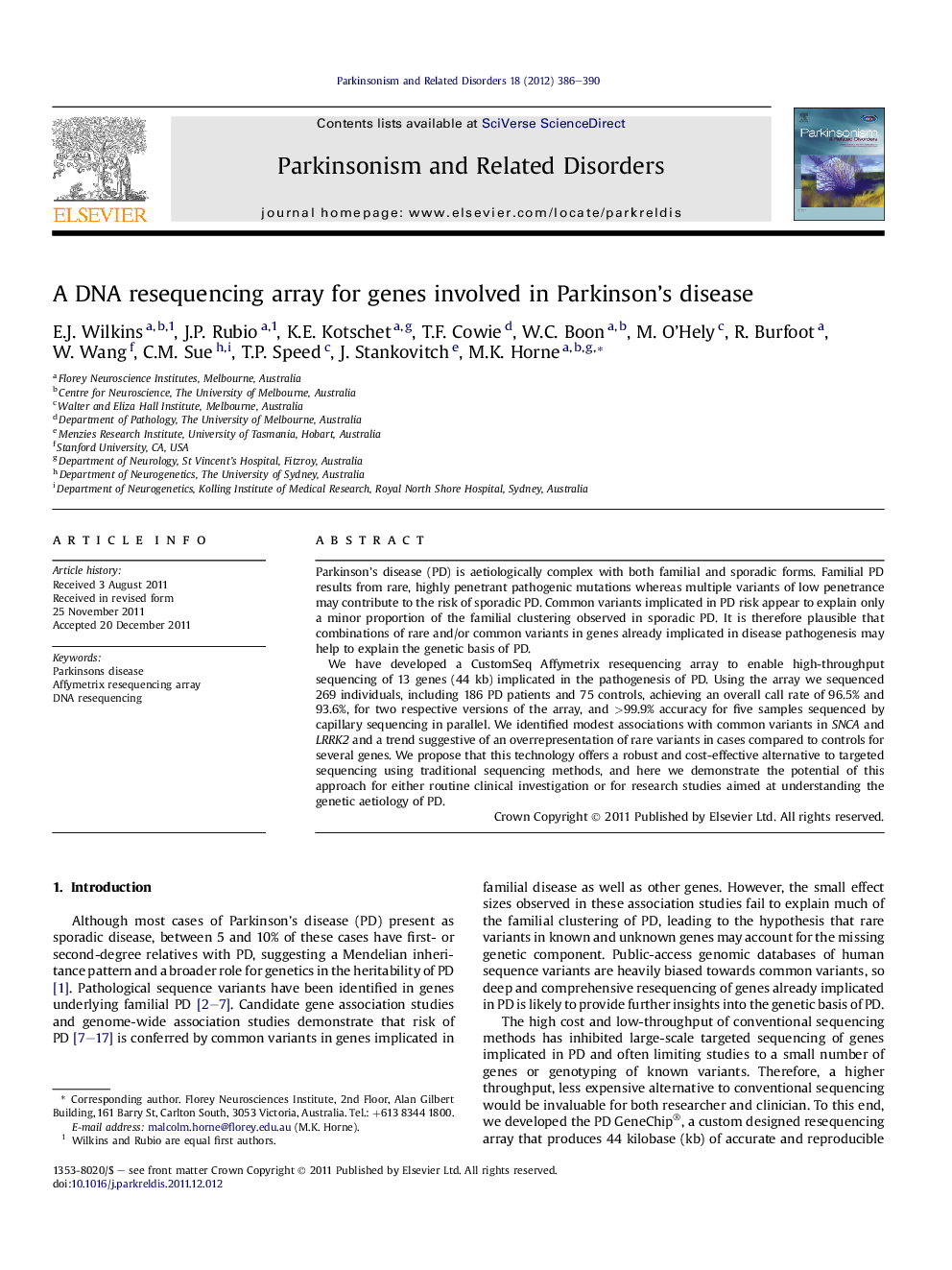| Article ID | Journal | Published Year | Pages | File Type |
|---|---|---|---|---|
| 1920897 | Parkinsonism & Related Disorders | 2012 | 5 Pages |
Parkinson’s disease (PD) is aetiologically complex with both familial and sporadic forms. Familial PD results from rare, highly penetrant pathogenic mutations whereas multiple variants of low penetrance may contribute to the risk of sporadic PD. Common variants implicated in PD risk appear to explain only a minor proportion of the familial clustering observed in sporadic PD. It is therefore plausible that combinations of rare and/or common variants in genes already implicated in disease pathogenesis may help to explain the genetic basis of PD.We have developed a CustomSeq Affymetrix resequencing array to enable high-throughput sequencing of 13 genes (44 kb) implicated in the pathogenesis of PD. Using the array we sequenced 269 individuals, including 186 PD patients and 75 controls, achieving an overall call rate of 96.5% and 93.6%, for two respective versions of the array, and >99.9% accuracy for five samples sequenced by capillary sequencing in parallel. We identified modest associations with common variants in SNCA and LRRK2 and a trend suggestive of an overrepresentation of rare variants in cases compared to controls for several genes. We propose that this technology offers a robust and cost-effective alternative to targeted sequencing using traditional sequencing methods, and here we demonstrate the potential of this approach for either routine clinical investigation or for research studies aimed at understanding the genetic aetiology of PD.
